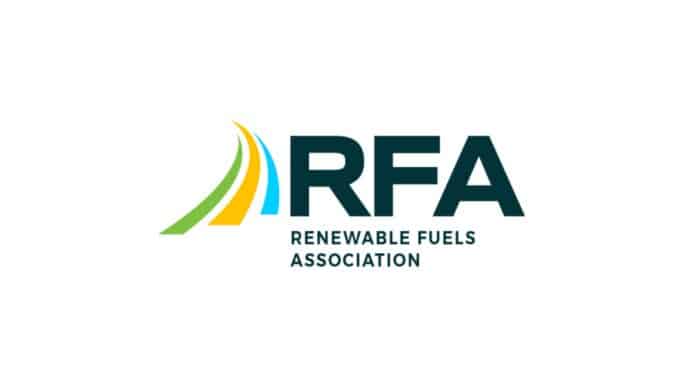In testimony to the U.S. Environmental Protection Agency today, the Renewable Fuels Association called on the agency to use honest carbon accounting and adopt a technology-neutral approach to reducing greenhouse gas emissions for passenger vehicles. According to RFA, EPA’s proposed actions on vehicular emissions standards for 2027-2032 “would effectively force automakers to produce more battery electric vehicles and would strongly discourage them from pursuing other technologies that could achieve the same—or even better—environmental performance at a lower cost to Americans.”
“RFA shares the Biden administration’s goals of increasing vehicle efficiency and reducing carbon emissions,” said RFA President and CEO Geoff Cooper. “However, we strongly disagree with regulatory approaches that arbitrarily pick technology winners and losers. Unfortunately, that’s exactly what this proposed rule would do.”
At issue is the agency’s proposal allowing EV manufacturers to use a zero grams/mile emissions compliance value for EVs. According to RFA, “This approach falsely assumes EVs have no carbon impacts whatsoever and ignores the upstream emissions related to electricity generation, as well as the substantial emissions involved in battery mineral extraction and vehicle construction. We strongly oppose EPA’s proposal to exclude upstream emissions in the GHG accounting.”
Cooper pointed out that the administration’s own research indicates that high-octane, low-carbon renewable fuels like ethanol can immediately deliver dramatic improvements in fuel efficiency and carbon performance when paired with the right engine technologies. “We urge EPA to reconsider its proposal and instead adopt a technology-neutral approach that treats all low-carbon transportation options fairly and equally, and we ask that EPA use this rulemaking to establish a roadmap for increasing the required minimum octane rating of our nation’s light-duty vehicle fuel.”
RFA will submit comprehensive written comments on the proposed regulation by the July 5 deadline.


